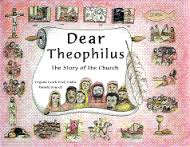Revelation 5:1 Then I saw in the right hand of him who was seated on the throne a scroll written within and on the back, sealed with seven seals.
Imagine having been given a tremendous responsibility to write the Holy Scrolls of God! Imagine Christ Jesus, risen King of all creation having instructed you to record the Gospel of the Cross and Resurrection for God’s Holy Church.
Why was a Scribe so highly regarded? Few men (and only the learned) could read and write the Holy Word of God.
Jesus had spoken with the authority of a Scribe, even as learned one teaching from a Higher Authority. Perhaps less than five men in one hundred of those who heard Jesus teach could read. And perhaps only a dozen among a thousand could write down the words of Jesus in any language.
For the Apostle John to have been given by Christ the very Word of Revelation (above); for the Apostle Matthew, a lowly (but literate) tax collector to have been given the charge to record the Gospel; for Luke, a doctor to the Apostles and follower of the Way to be given the charge to write down the Gospel being preached to all the world and in his most literate meticulous medical way to record the record of the Acts of the Apostles: these from the Throne of the Lord carry tremendous responsibility and eternal consequence of getting it right.
In the Name of God, the Gospel Truth must be the truth, the whole truth, and nothing but the truth.
By witness of the Father, the Son, and the Holy Spirit the Gospel truth is Good News we can take to the bank of eternity.
The first Scroll of Luke (the Gospel of Luke) begins in this way from the witness given to him at many different times, by eye witnesses of Jesus:
Luke 1 Inasmuch as many have undertaken to compile a narrative of the things that have been accomplished among us, 2 just as those who from the beginning were eyewitnesses and ministers of the word have delivered them to us, 3 it seemed good to me also, having followed all things closely for some time past, to write an orderly account for you, most excellent Theophilus, 4 that you may have certainty concerning the things you have been taught.
Dr. Luke has recorded the events leading up to the Cross and resurrection. Now in the Acts of the Apostles Luke will relate the journey and witness of the Apostles taking the Gospel into all the world.
To be continued…

